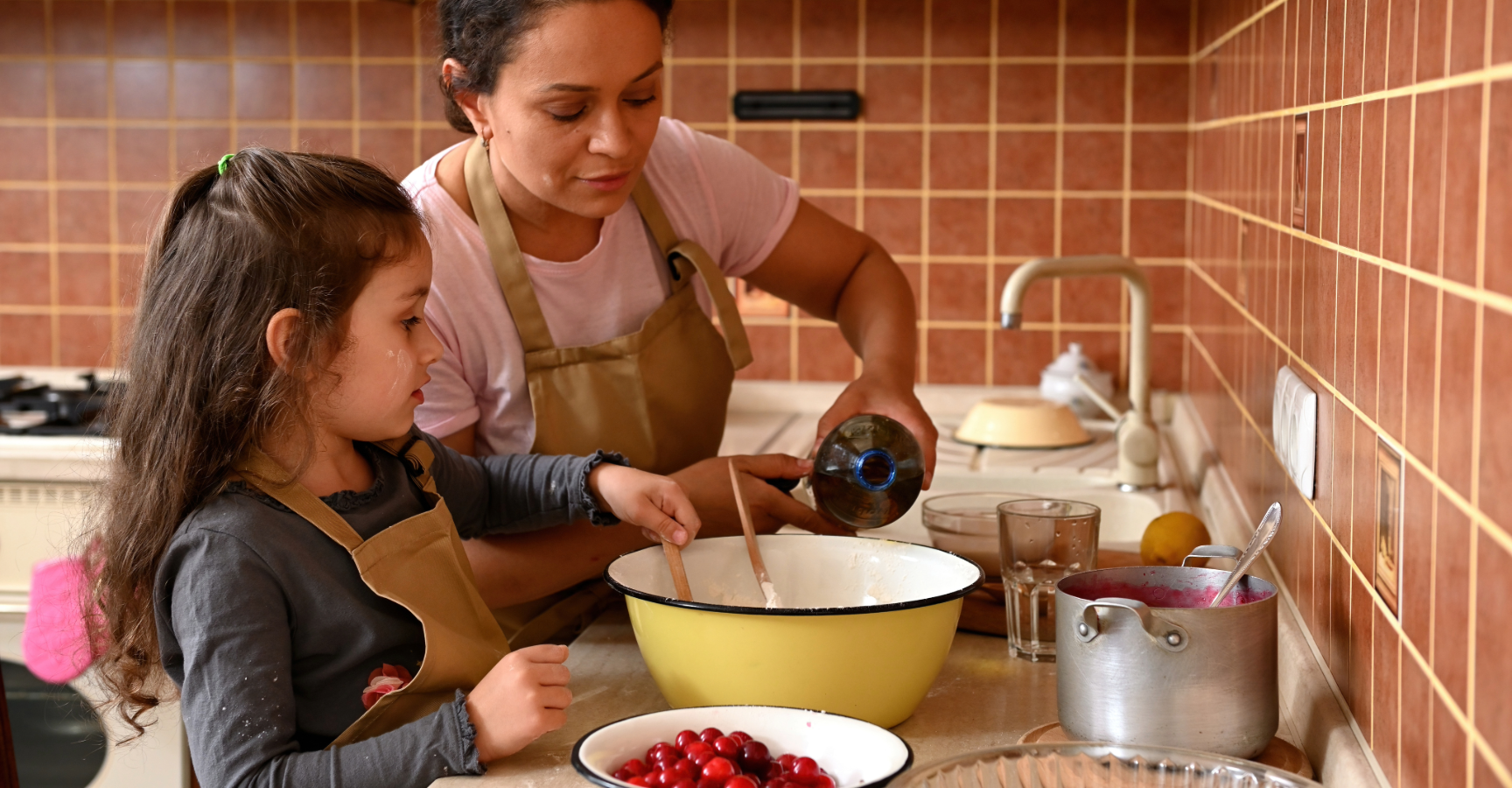
Nurturing little foodies
(and helping to prevent fussy eating, while you're at it)
We all want our children to grow up being wonderful eaters. Having a child who chomps happily through all the protein and vegetables on their dinner plate, is excited to try new foods and always asks for more is most parents' dream. And while there are a few of these unicorn children around (we all know one), most children have a much bumpier path to food acceptance.
Unfortunately, there’s no ‘magic bullet’ to transform your little ones into little foodies overnight or help them move through their fussy eating stage. But there are some simple tips you can implement which can help set them up to become more adventurous eaters as they grow.
And remember, while most information about setting up your children’s eating habits focuses on the first year or two of life, your child's 'food journey' doesn't stop at 1. Or 2. Or even 5. Most children continue to explore and develop their relationship with food well into their teenage and even adult years. So if your journey starts a little bumpier than you'd like... don't worry, you haven't missed the boat. Working to support and build curiosity and engagement with all different types of food is always worthwhile, regardless of age.
Note: the ideas provided in this blog are longer term, preventive strategies aimed at children 0-5 years. If you’re currently dealing with food refusal and seeking more instant support, check out our ‘Fussy Eating Blog’.
Our six tips to encourage adventurous eating (and help prevent fussy eating):
Make food a focus of play- and story-time
Talking positivity about food during playtime and story time can help little ones be more open to trying new foods. Borrowing food-focused books from the library is a simple way to share positive messages about food. We love Lunch at 10 Pomegranate Street, but there are plenty of wonderful options to choose from.
Little ones love pretend cooking, from mud-pies to pretend food cafes and tanbark-shopping in the playground. When engaging in pretend play, make the discussion around foods you'd like them to explore more (i.e. veggies). It doesn't need to be fancy or detailed, simply talking about make-believe food can help. E.g. “I’m making a yummy sandwich with tomato, cheese, cucumber and lettuce. Mmm this lettuce is so crunchy! What are you making?”
Get your hands dirty
Encouraging your little ones to get their hands dirty in the garden is a fun way to nurture their curiosity about food. You don’t need to commit to an entire veggie patch - even growing a few hardy herbs in pots can be a great start. You also don’t need a beautiful terracotta plant pot to get started. An old yoghurt or ice cream tub works just fine. Just (carefully!) put a few holes in the bottom, fill with soil, and you’ve got yourself a pot.
Tip: Mint, oregano and rosemary are practically indestructible, so a great option if you don’t have a green thumb! Other fun ideas, which are perfect for small spaces and small humans, are strawberries, cherry tomatoes or baby carrots.
Toddlers and older children will enjoy preparing the soil, planting seeds, and taking care of the plants. Watching those plants sprout and grow is like watching magic happen for little eyes. And the best part? They're often more inclined to give the harvest a taste-test!
Get your little Sous Chefs to join you in the kitchen
Inviting little ones to join you in the kitchen can be a game-changer. Involving them in choosing what you are going to cook (offer them a choice of 2-3 options to keep it contained!) and/or preparing food with you can give them a sense of ownership over the food and be more open to tasting the final product.
And if the idea of preparing a whole meal with your little one gives you heart palpitations…. don’t worry, you can start small. Even having your little ones help with a couple of steps while you’re making dinner can make a big difference. For example, mixing a salad or serving a meal onto plates, can be an easy introduction. If your little ones don’t seem keen on helping, you could start with something more fun like cookies (show me a toddler who doesn’t like to eat cookie dough?) and build from there.
Added bonus: cooking itself is such an important life skill for little ones, and provides opportunities to build literacy and numeracy skills, too. Counting out teaspoons and plates, or talking about new food words (think words like crunchy, spicy, smooth and colours, etc.) is so easy that remembering to do it is probably the hardest part!
Model positive eating habits
Children are sponges and are great at copying what they see. Modelling positive eating habits is such an effective way to encourage little ones to eat their veggies and try new foods.
Make mealtimes a family affair
We know it can be tricky to eat as a family all the time, particularly where parents work outside the home. But wherever you can, it is a great idea to try and eat meals with your little ones. Eating together provides a great chance to model healthy eating. It also provides an opportunity for you to share what you like about different flavours and ingredients and may help build their curiosity. e.g. “Mmm I love the sweetness of this corn and cherry tomatoes, what’s your favourite part of the meal?
You see, meal times are about so much more than just food. They’re a chance to sit together as a family, switch off from your devices/jobs and focus on each other. Eating together is one of the simplest things you can do to start establishing a positive food environment for your kids.
Keep it relaxed
Keeping mealtimes as fun and relaxed as possible (yes we know, easier said than done!) can help little ones build positive connections with food. This sets the stage for them to look forward to mealtimes.
It's easy to get caught up in the mission of getting little ones to eat, or try, certain foods. Before we know it, mealtimes can become stressful for everyone.
Keep the tips below for more relaxed mealtimes.
Find more info on these in our 'Making Mealtimes Fun' blog:
- Let children to explore naturally. Try including some of their favourite foods alongside new food.
- Try to avoid asking little ones to taste or eat something. Instead, try commenting on what you’re eating and how much you’re enjoying it and you may find they follow suit.
- Embrace the mess (or at least try to be ok with it). Little ones love to experiment and play with their food. In fact, playing with food, especially unfamiliar food, helps children learn about food and may mean they’re more likely to try and taste these new foods in future.
For more tips, particularly fussier eaters, check out our Managing fussy eating behaviours' blog.


Comments (0)
Back to Positive Relationships with Food